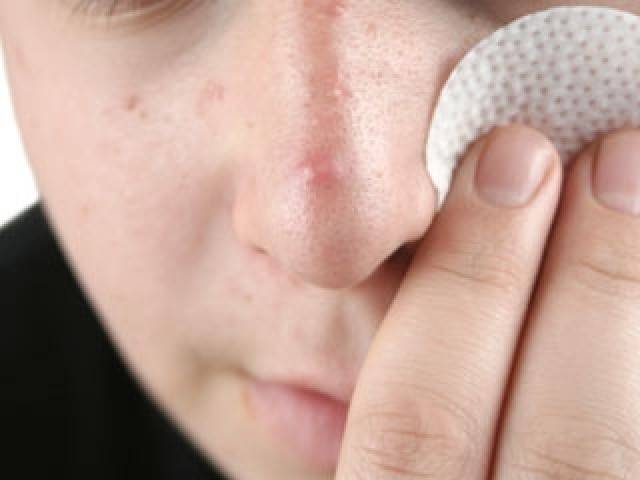
Acne is an inflammatory skin disorder of the skin’s sebaceous glands and hair follicles that affects about 80% of people between the ages of 12 and 24. During puberty high levels of hormones are produced in both girls and boys. This leads to the production of large quantities of sebum. Sebum is an irritant that can clog the pores and form a pimple which may become infected and form a pustule. Hormones don’t go away after adolescence. Many women still get premenstrual acne from of the release of progesterone after ovulation.
Acne is a disease that affects the skin’s oil glands. The small holes in your skin (pores) connect to the oil glands under the skin. These glands make an oily substance called sebum. The pores connect to the glands by a canal called a follicle. Inside the follicles, oil carries dead skin cells to the surface of the skin. A thin hair also grows through the follicle and out to the skin. When the follicle of a skin gland clogs up, a pimple grows. Most pimples are found on the face, neck, back, chest, and shoulders. Acne is not a serious health threat but it can cause scars.
Causes of Acne:
The exact cause of acne is unknown, several related factors are:
§ Hormonal activity supposed to be responsible, such as menstrual cycles and puberty.
§ Increase in hormones called androgens (male sex hormones), which causes sebaceous glands to enlarge and make more sebum.
§ Hormonal changes related to pregnancy can also cause acne.
§ Another factor is heredity or genetics. Researchers believe that the tendency to develop acne can be inherited from parents. For example, studies have shown that many school-age boys with acne have a family history of the disorder.
§ Accumulation of dead skin cell.
§ Bacteria in the pores, to which body becomes allergic.
§ Skin irritation or scratching of any sort will active the inflammation.
§ Starting or stopping birth control pills.
§ Heredity (if your parents had acne, you might get it too).
§ Some types of medicine.
§ Greasy makeup.
In some patients, contributing factors may be:
Pressure: In some patients, pressure from helmets, chinstraps, collars, and the like can aggravate acne.
Drugs: Some medications may cause or worsen acne, such as those containing iodides, bromides, or oral or injected steroids (either the medically prescribed prednisone or the steroids bodybuilders or athletes take.) Most cases of acne, however, are not drug-related.
Occupations: In some jobs, exposure to industrial products like cutting oils may produce acne.
Pathophysiology of Acne
§ Excessive secretion of oils from the sebaceous glands accompanies the plugging of the pores with naturally occurring dead skin cells (corneocytes) blocking hair follicles.